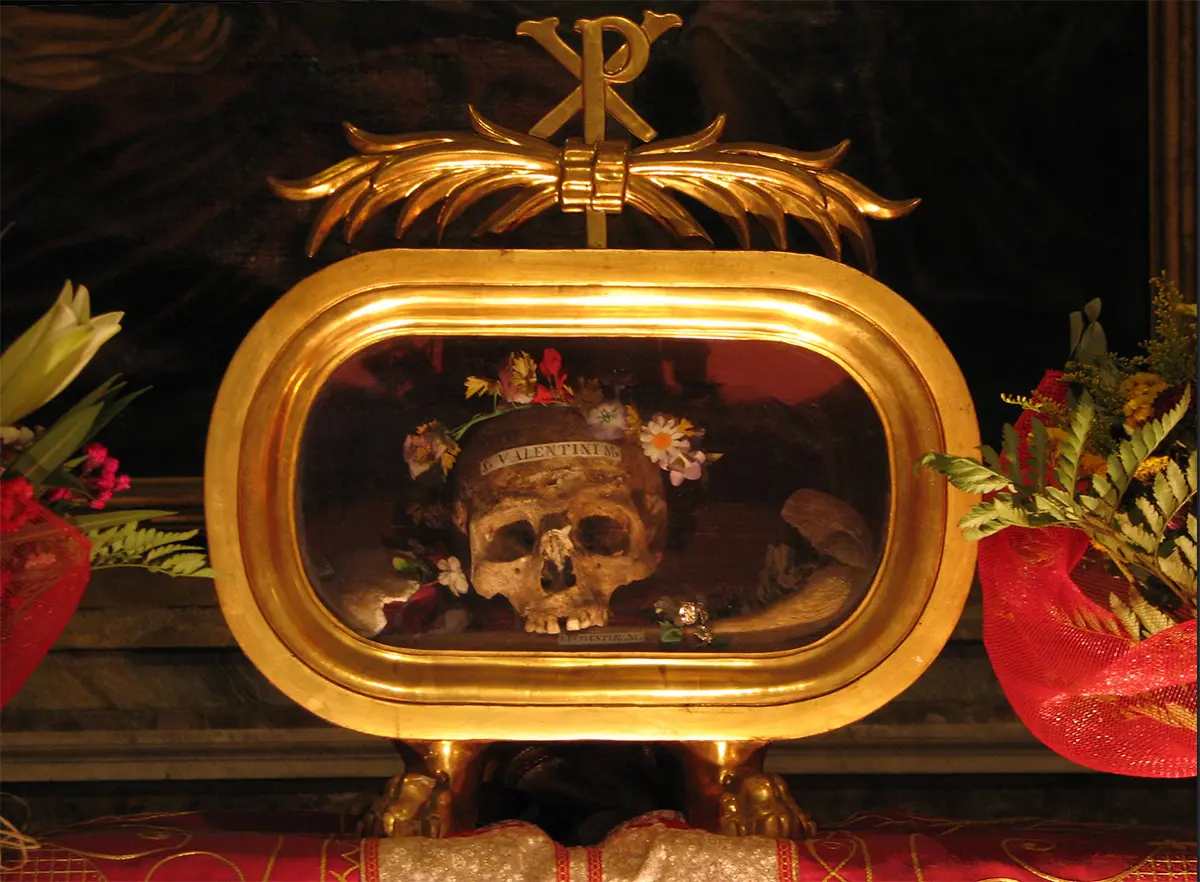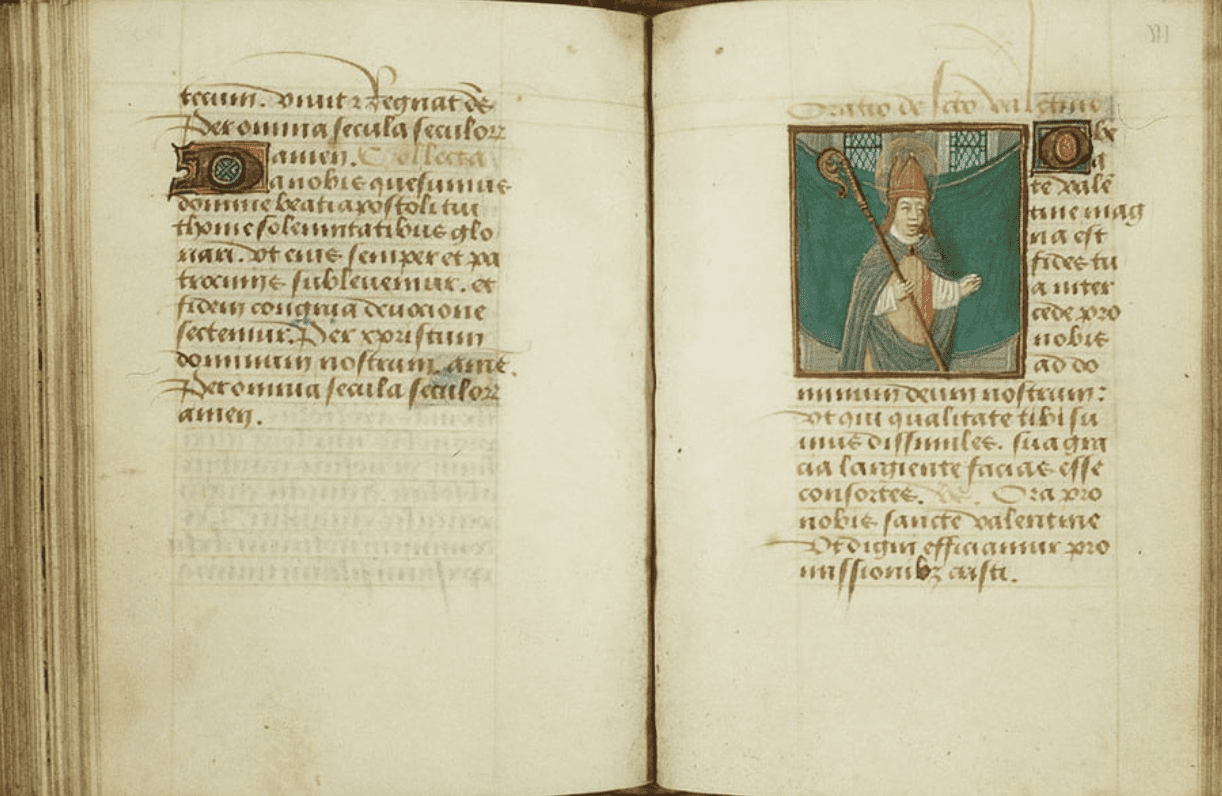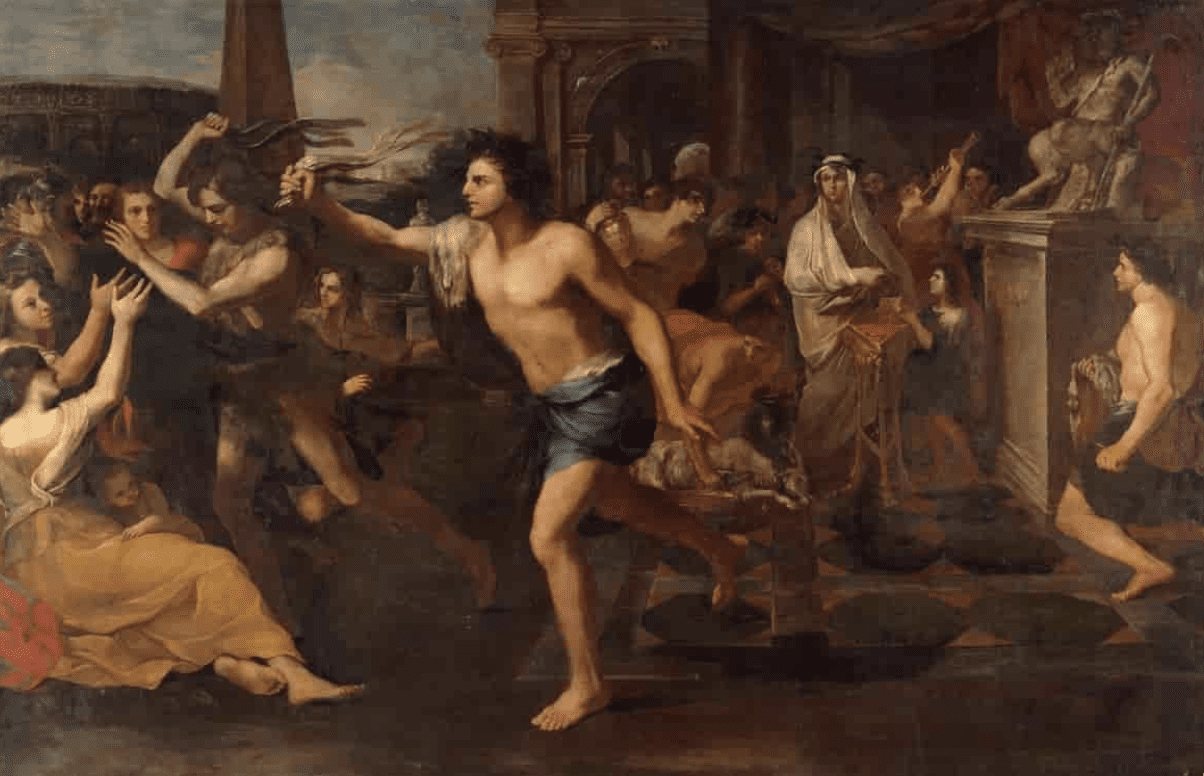Unveiling the Enigma of St. Valentine: His Casket Sealed Bones, His Death, a Pagan Origin
Come with us on a journey that is shrouded in mystery and intrigue—a voyage to unearth the secrets of St. Valentine. As purveyors of the extraordinary and seekers of the unknown, we often stumble on unearthly and eerie tales that connect us directly to the hustle and bustle of modern holiday celebrations.
Such is this one, a story that will take you to St, Valentine’s elusive remains… his bones. Prepare for an unforgettable odyssey to unravel the mysteries of this destination in Rome, specifically the Basilica of Santa Maria in Cosmedin.
Delve into a Mystery: The Legend of St. Valentine’s Bones
In the heart of Rome, amidst the ancient cobblestone streets and shadowy alleyways, lies a crypt steeped in legend and lore—the final resting place of St. Valentine. According to centuries-old accounts, St. Valentine, a third-century Roman saint, met his demise at the hands of Emperor Claudius II for defying the emperor’s decree and secretly marrying young lovers.
But the mystery surrounding St. Valentine doesn’t end with his martyrdom. Whispers of clandestine burials and hidden relics have long haunted the corridors of history, captivating the imaginations of believers and skeptics alike. It is said that upon his death, St. Valentine’s followers spirited away his bones, concealing them in a secret crypt to safeguard them from desecration.
Unusual Places to Visit: The Discovery of St. Valentine’s Bones
Fast forward to the year 1836, when the quest to uncover St. Valentine’s bones took a chilling turn. During the renovation of a Roman basilica dedicated to the saint, workers stumbled upon a mysterious wooden box containing skeletal remains and a cryptic inscription: “From your Valentine.” The discovery sent shockwaves through the city, reigniting ancient legends and sparking a fevered frenzy of speculation.
As rumors of the unearthly find spread like wildfire, the basilica became a magnet for curious travelers and intrepid adventurers drawn to the allure of the unknown. Tales of ghostly apparitions and inexplicable phenomena swirled around the ancient site, casting a veil of uncertainty over its shadowy corridors.
The Mystery Deepens: Scientific Analysis and Supernatural Intrigue
In the years that followed, scientists and historians embarked on a quest to unravel the enigma of St. Valentine’s bones. Forensic analysis and carbon dating techniques were employed to determine the authenticity of the skeletal remains, yet the results yielded inconclusive evidence, leaving researchers baffled and the mystery unsolved.
But it wasn’t just scientific scrutiny that fueled the intrigue surrounding St. Valentine’s bones. Visitors to the basilica reported eerie encounters and spine-chilling experiences, from whispered prayers echoing through the halls to fleeting glimpses of a spectral figure wandering the crypt’s labyrinthine passages. Some claimed to feel an otherworldly presence lingering in the air as if the saint himself were watching over them from beyond the grave.
The Death of St Valentine: A Mystery of Its Own
According to the ancient chronicles, it was on a fateful February 14th, during the tumultuous 3rd century A.D., that the life of Valentine intertwined with the shadowy corridors of Roman history. A man of unwavering faith and compassion, Valentine was said to have incurred the wrath of the Roman Emperor Claudius II for his clandestine acts of kindness towards persecuted Christians.
Imprisoned and cast into the depths of darkness, Valentine continued his clandestine ministry, secretly uniting Christian couples in the bonds of holy matrimony. But it was not long before his deeds drew the attention of the emperor, whose heart was hardened against the burgeoning faith.
As the legend unfolds, whispers abound of Valentine’s valiant efforts to sway the emperor’s soul toward the light of Christianity. Yet, Claudius, consumed by rage and fear, remained steadfast in his resolve to crush the nascent movement.
In a final act of defiance, Valentine stood before the emperor, unwavering in his faith, and dared to challenge the might of the Roman Empire. It is said that he offered Claudius a choice—renounce his pagan beliefs and embrace the teachings of Christ, or face the consequences.
But Claudius, consumed by pride and fury, spurned Valentine’s offer, condemning him to a fate most grim. On that solemn day, beneath the cold gaze of the Roman gods, Valentine met his end at the edge of the executioner’s blade—a martyr for the cause of love and faith.
Another Legend has Evolved Adding More Mystery of St Valentine
Yet, amidst the shadows of his martyrdom, another tale emerges—a tale of divine intervention and miraculous grace. Legend speaks of a young maiden named Julia, the blind daughter of Valentine’s jailer, whose sight was restored through the power of prayer and faith.
In the waning hours before his martyrdom, Valentine is said to have penned a missive to Julia, a testament to their enduring bond and the eternal flame of love that burned within his soul. “From your Valentine,” the inscription reads—a poignant reminder of the enduring legacy of a saint whose deeds transcend the confines of mortal existence.
But as with all legends, the truth remains veiled in ambiguity and uncertainty. Some historians speculate that Valentine may have been but one among many martyrs who fell beneath the shadow of Claudius’s tyranny, their names lost to the sands of time.
Yet, despite the passage of centuries and the shifting sands of history, the Catholic Church has enshrined Valentine in the pantheon of saints, his memory immortalized in the pages of Roman Martyrology as a beacon of hope and inspiration for generations to come.
Ready to explore the mystery? Start planning the experience of a lifetime HERE!
To keep up with our blog and other Mysterious Adventures offers, sign up for our newsletter HERE!
Beyond the Patron Saint: An Ancient and Chilling Version of the Roots of St. Valentine’s Day
In the murky depths of history, amidst the eerie whispers of forgotten rituals, lies the sinister tale of Lupercalia—an ancient pagan festival that cast a chilling shadow over the streets of Rome during the 6th century BC. Far removed from the saccharine sentiments of modern Valentine’s Day, Lupercalia was a ghastly spectacle, steeped in bloodlust and primal urges.
Responding to a primal thirst for blood and battle, the Romans unleashed the horrors of Lupercalia each year on February 15th. This macabre celebration, cloaked in the guise of pagan tradition, sent shivers down the spines of all who dared to witness its gruesome rites. While Valentine’s Day may bear the name of a martyred saint, whispers linger among historians, suggesting a darker lineage—a lineage that traces its origins back to the depths of Lupercalia’s depravity.
A Terrifying Valentine’s Day As We Don’t Know It
Unlike its sanitized counterpart, Lupercalia was a nightmarish tableau of violence and debauchery, where the boundaries between the living and the dead blurred in a haze of primal frenzy. Animal sacrifice stained the cobblestone streets crimson, while the air hung heavy with the stench of death and decay. It was a time when the primal instincts of mankind ran rampant, fueled by a lust for bloodshed and conquest.
But it was not merely blood that flowed freely during Lupercalia—it was desire, raw and unbridled, coursing through the veins of every reveler. Random matchmaking and coupling became the order of the night, as bodies entwined in a fevered dance of passion and possession. Yet, beneath the veneer of lust lay a darker purpose—to ward off the malevolent spirits that prowled the shadows, hungry for human souls.
In the flickering torchlight, amidst the frenzied cries of the mob, the ancient rituals of Lupercalia unfolded with ghastly precision. Priests clad in furs and hides, their faces twisted into grotesque masks of savagery, wielded whips fashioned from the flayed skins of sacrificial animals. With each crack of the lash, they sought to purify the land, to drive away the demons that lurked in the darkness, hungry for the souls of the unwary.
But even as the flames of Lupercalia burned bright, casting twisted shadows upon the walls of Rome, a specter loomed on the horizon—a specter known as Christianity. With the rise of the new faith came the inevitable clash with the old ways, as the followers of Christ sought to purge the land of its pagan taint. Yet, in the depths of the Roman psyche, the echoes of Lupercalia lingered still, a dark reminder of mankind’s capacity for cruelty and depravity.
To Honor a Holiday With Celebration, Honor its History
As we mark the passing of another Valentine’s Day, let us not forget the mysterious and sinister origins of this most beloved of holidays. For beneath the roses and chocolates lies a legacy steeped in blood and darkness, a legacy that stretches back through the ages to the primal horrors of Lupercalia. And though we may try to bury the past beneath layers of sentimentality and romance, the shadows of history can never truly be erased.
References:
https://www.history.com/topics/ancient-rome/lupercalia
https://www.countrylife.co.uk/comment-opinion/legend-and-legacy-of-st-valentine-46542
 Experience the Mystery Firsthand
Experience the Mystery Firsthand
As purveyors of extraordinary experiences, these stories are our inspirations for the journeys we embark on. We invite you to come with us on an exploration unlike any other. Join us as we travel to search ancient and mystical lands shrouded in darkness, listen to whispered tales of centuries past, and immerse ourselves in the rich tapestry of history and legend that surrounds many of our enigmatic destinations.
Remember, in the realm of our Mysterious Adventures, the journey is just beginning. Will you dare to unlock the secrets of the past and venture into the unknown? Join us, if you dare, and experience the thrill of a lifetime in the shadowy corridors of history.
LEARN MORE >>>




 Experience the Mystery Firsthand
Experience the Mystery Firsthand



